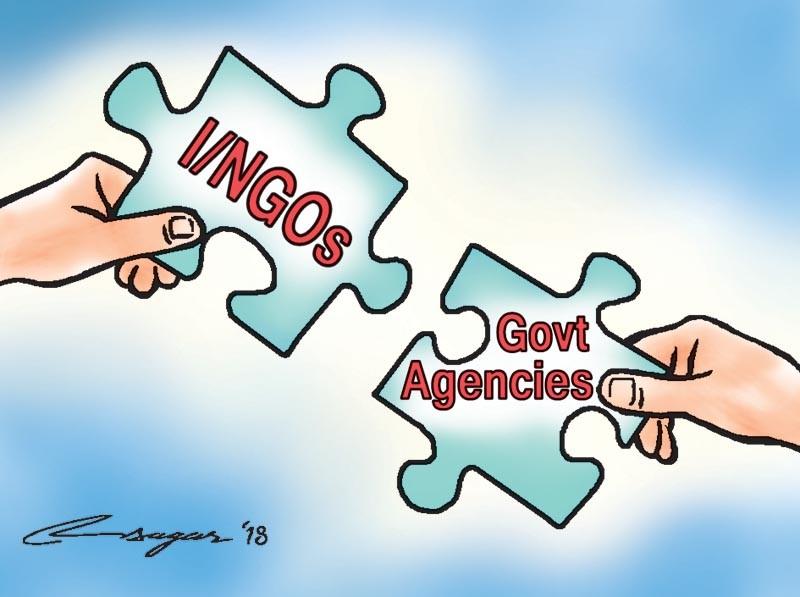
Government, Social Welfare and NGOs
Posted on 06 January, 2021 at 13:06
By Epaphras Chinyakuza
The phenomenon of
the NGOs or the Non-Governmental Organizations entering the field of social
welfare accelerated in the 1980s, with some focusing on social, economic and
political development of the Zimbabwean people particularly in the rural areas.
In earlier
decades, though there were several charitable trusts and organizations like Red
Cross, the explosion in the number of NGOs and the concomitant rise in their
profile were relatively muted. This aspect of the NGOs taking center stage has
been attributed to the need for NGOs to complement local governments and
central government efforts to deliver development and actualize the principles
of social justice and social welfare. In Zimbabwe, the need for NGOs was
exacerbated by the economic crises in recent years, first during the ESAP era
in the early 1990s, then the 2006-8 hyperinflationary era and the current
austere environment. This trend also became more noticeable in the first decade
of this millennium wherein the NGOs were seen by many as the real votaries of
social welfare with the rise in the failed states of Africa and other parts of
the world where governance simply collapsed.
Many people often
wonder about why the NGOs or the Non-Governmental Organizations need to work in
the realm of social welfare as that is the job of the government. The reasoning
behind this is that the primary role of the government is social welfare and
hence, it has a duty and responsibility towards the citizens to promote social
welfare. However, ever since the 1990s, government has been following the
dictum of “less government is better government†wherein to some extent, it
withdrew from some areas concerning social welfare and instead let private
organizations take over health, education, urban amenities, and other
infrastructural services. This is where the NGOs stepped in with their
objectives of fulfilling the role that the government has to play but which it
decided to abstain.
Another aspect
about governmental failure, which the NGOs remedied, was in the realm of
implementation of policies. Since policies are made for social welfare, the
government has a duty and a responsibility to actualize the noble principles
behind such policies. Instead, people realized that the government was taking
lesser and lesser interest in their welfare and hence, NGOs stepped into this
gap as well. The point here is that NGOs quickly filled in the gaps in the
roles that the government had to play and these were to do with fulfilling the
need for basic services, failure to implement the policies, and third,
suggesting, and advocating appropriate policies.
Having said that,
it needs to be mentioned that even now the government is still the best bet to
actualize social welfare because it has the size and the scale to reach out to
large populations. No matter how much the NGOs try, they simply cannot match
the power of the governments in actualizing social welfare simply because the
governments are the agencies tasked with the purpose of social welfare and
because the amount of money that is at the disposal of the government is
something that even the biggest NGOs cannot match. Hence, the implications of
this are that the government and the NGOs are in a seesaw battle with each of
them trying to outdo the other where social justice and social welfare are
concerned. This is the reason why the governments and the NGOs exist in a state
of tension with each other.
The ideal model
for actualizing social welfare would be one where the government is directly in
charge but where the NGOs are tasked with the objective of ensuring smooth
delivery of social services and where they are called upon to monitor the
delivery mechanisms and provide objective feedback. This means that the
external audits of the programs undertaken by the government have to be done by
the NGOs no matter how much the governments resist such efforts. Further, this
model of development is being practiced in other nations like India.
Finally, social welfare
is best actualized by the government. Despite the many successes of NGOs, the
fact remains that it is the duty of the government to promote social welfare
and no amount of good work done by the NGOs can substitute for that done by the
government. Both the government and the NGOs have to realize that each cannot
do without the other and hence, instead of a tense relationship, a creative
tension wherein each complements and supplements the other would be preferred.
After all, social welfare is a topic that is of paramount importance and
something that should not be marred by personality clashes or overlapping areas
of interest.
